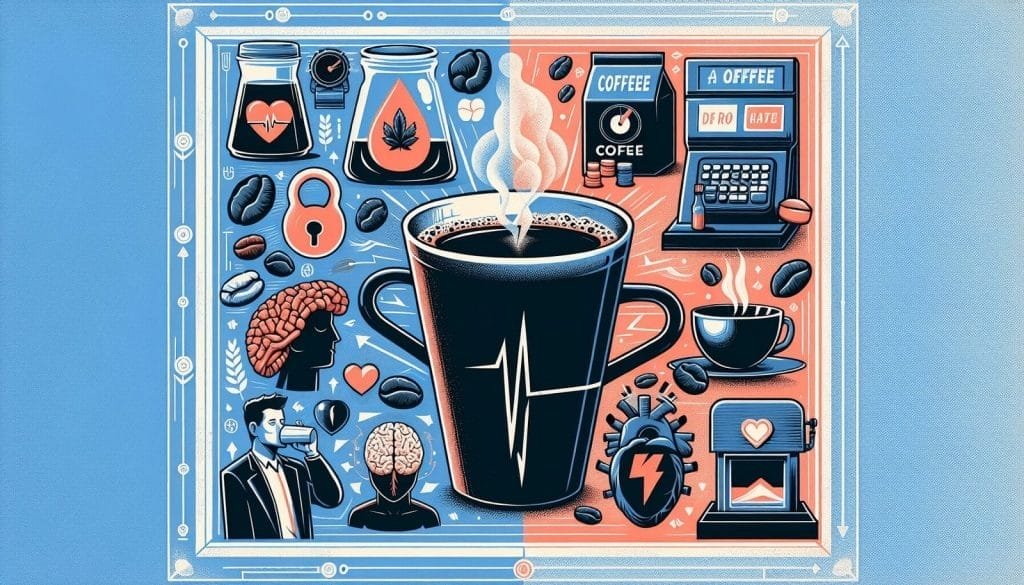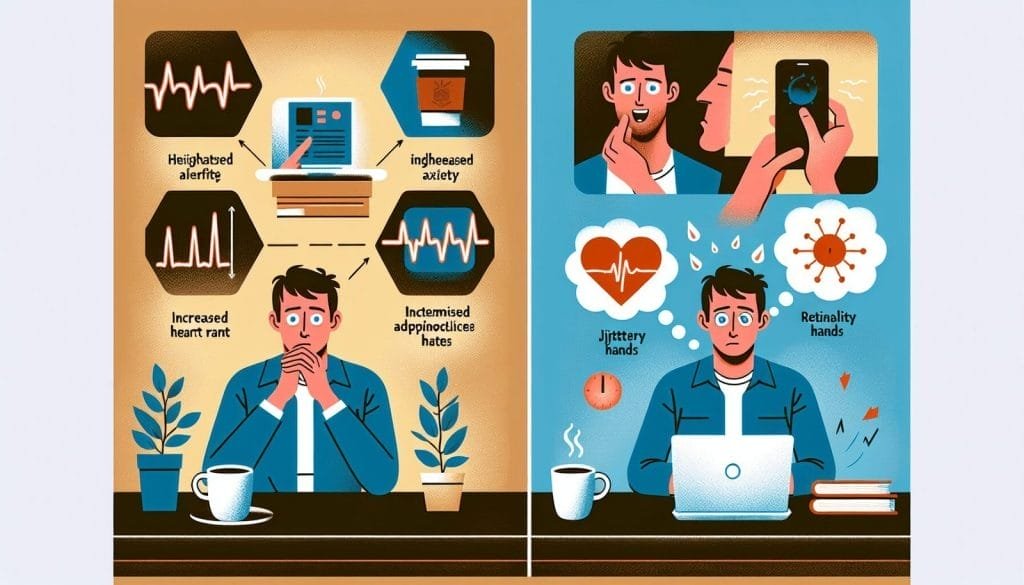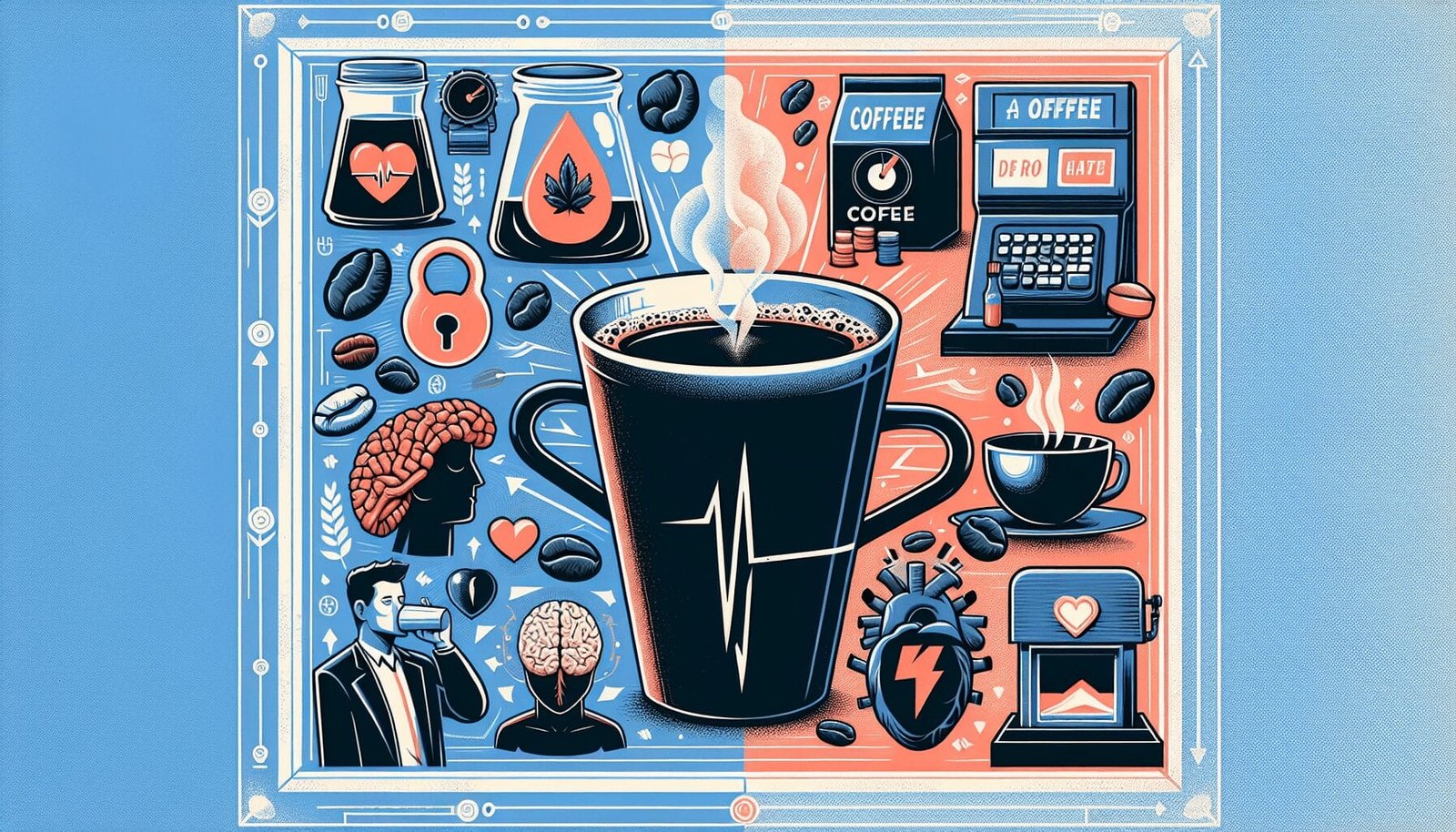Imagine this: it’s early morning, the world is still awakening, and you’re holding a warm cup of coffee, its aroma filling the air with anticipation. But wait, you’ve heard whispers about the potential drawbacks of indulging in this heavenly elixir. Is enjoying a cup of coffee once a week really okay? In this article, we invite you to explore the fascinating world of coffee and uncover the truth behind this beloved beverage. Join us as we sift through the myths, unravel the science, and reveal whether that weekly coffee fix is a guilty pleasure or a guilt-free delight.

Understanding Coffee Consumption
Coffee is a widely consumed beverage enjoyed by people all over the world. But what exactly does it mean to drink coffee in moderation? According to experts, moderate coffee drinking typically refers to consuming about 3-4 cups of coffee per day. This amount is considered safe for most healthy adults. However, it’s important to note that individual tolerance and sensitivity to caffeine can vary.
Why coffee gets a bad rap
Coffee has often been associated with negative health effects, leading to its less than favorable reputation. One reason for this is the belief that excessive coffee consumption can lead to caffeine dependence and withdrawal symptoms when trying to cut back. Additionally, some studies suggested a potential link between coffee intake and disrupted sleep patterns. These factors have contributed to coffee’s bad rap over the years.
Research into coffee consumption frequency
Scientists have dedicated significant research efforts to understand the impact of coffee consumption on our health. While studies have primarily focused on daily or regular coffee consumption, very few have explored the health effects of drinking coffee only once a week. This limited information leaves many coffee lovers wondering how it may affect them.
Health Benefits of Drinking Coffee
Coffee contains a variety of antioxidants, which can help protect the body against oxidative stress and free radicals. These antioxidants may have potential benefits for brain health, including improving cognitive function and reducing the risk of neurodegenerative diseases such as Alzheimer’s and Parkinson’s. Additionally, regular coffee consumption has been associated with a decreased risk of certain diseases, including liver disease, type 2 diabetes, and certain types of cancer.
Potential Risks of Regular Coffee Consumption
Despite the potential health benefits, regular coffee consumption is not without its risks. One of the major concerns is the development of caffeine dependence and the accompanying withdrawal symptoms such as headaches, irritability, and fatigue. Another concern is the impact of coffee on sleep quality, as the stimulating effects of caffeine can interfere with falling asleep and maintaining restful sleep. Lastly, individuals with certain health conditions such as acid reflux or cardiovascular problems may experience worsened symptoms when consuming coffee regularly.
Drinking Coffee Only Once a Week
For those who enjoy the aroma and taste of coffee but prefer a more infrequent indulgence, drinking coffee only once a week may be a suitable choice. While this frequency is significantly lower than average consumption rates, it can still provide a sense of satisfaction and enjoyment. It may also reduce the likelihood of developing caffeine dependence or experiencing sleep disturbances.
Possible health implications
Drinking coffee once a week may not offer the same level of health benefits as regular consumption. However, research suggests that even infrequent coffee intake can have some positive effects on health. The antioxidants present in coffee can still contribute to overall well-being and protect against certain diseases, albeit to a lesser extent. Additionally, the enjoyment and ritualistic aspect of having a weekly coffee may bring psychological benefits that enhance mood and well-being.
Advantages and disadvantages
One advantage of drinking coffee only once a week is the potential to avoid the negative consequences associated with excessive and daily coffee consumption. By keeping coffee intake to a minimum, you can reduce the risk of caffeine dependence, sleep disturbances, and worsening of certain health conditions. On the other hand, a disadvantage of infrequent coffee drinking is missing out on the potential cumulative benefits that can come from regular consumption. Additionally, for some individuals, the once-a-week indulgence may not be as satisfying or fulfilling as a more frequent coffee habit.
What Research Says about Weekly Coffee Intake
When it comes to studying the health effects of infrequent coffee consumption, the research is relatively limited. Most studies focus on daily or regular coffee intake, making it challenging to draw definitive conclusions about drinking coffee only once a week. However, the available evidence suggests that even occasional coffee consumption can still offer some benefits, particularly in terms of providing antioxidants and potential cognitive enhancements.
Previous studies on infrequent coffee consumption
Several studies have explored the effects of sporadic or moderate coffee consumption, shedding some light on its potential health implications. One study found a decreased risk of heart disease among individuals who consumed coffee 1-3 times per month compared to non-coffee drinkers. Another study found that infrequent coffee intake was associated with a lower risk of developing type 2 diabetes. These findings suggest that even occasional coffee consumption may have beneficial effects on certain health outcomes.

Results and interpretations
The existing research on weekly coffee intake suggests that while it may not offer the same extensive health benefits as regular consumption, it still has some positive effects. The antioxidants present in coffee can provide a level of protection against oxidative stress and certain diseases, although the effects may be milder than with higher coffee consumption frequency. It’s important to note that individual responses and health outcomes can vary, and further research is needed to fully understand the impact of infrequent coffee drinking.
Limits of existing research
A major limitation of the existing research on infrequent coffee consumption is the lack of studies specifically focusing on drinking coffee only once a week. Most studies lump together occasional or moderate coffee drinkers, making it challenging to discern the effects of such infrequent consumption. Additionally, the available research primarily relies on self-reported coffee intake, which may introduce inaccuracies and biases. To gain a more comprehensive understanding of the health implications, it is crucial to conduct specific studies that examine the effects of weekly coffee intake.
Comparing Coffee to Other Caffeinated Beverages
Coffee is not the only source of caffeine in our diets. Other popular caffeinated beverages include tea, energy drinks, and soft drinks. When compared to these alternatives, coffee typically contains higher amounts of caffeine. However, it’s important to consider that the effects of caffeine can vary depending on the source due to factors such as additional ingredients and serving sizes.
Caffeine content comparison
Coffee generally has a higher caffeine content compared to other caffeinated beverages. A standard 8-ounce cup of coffee contains approximately 95 milligrams of caffeine, while the same amount of black tea contains about 47 milligrams. Energy drinks and cola drinks can contain even higher amounts of caffeine, with some brands containing up to 300 milligrams or more per serving. It’s essential to be aware of the caffeine content in different beverages to make informed choices about your caffeine intake.
Health effects of other caffeinated drinks
While coffee often takes the spotlight in discussions about caffeine and health, other caffeinated drinks can also have their own set of health effects. Tea, for example, contains not only caffeine but also beneficial compounds such as polyphenols that have antioxidant properties. Energy drinks and soft drinks, on the other hand, are often associated with higher sugar content and potential negative impacts on overall health and dental hygiene. It’s crucial to consider the complete nutritional profile of any caffeinated beverage and consume them in moderation.
Steps to Healthier Coffee Drinking
If you enjoy drinking coffee and want to make it a healthier habit, there are several steps you can take:
Choosing high-quality coffee
Opt for organic or fair-trade coffee to ensure that you are getting a product that is free from harmful pesticides and supports fair labor practices. Additionally, consider selecting single-origin or specialty coffees known for their superior taste and quality.
Limiting added sugars and artificial flavors
Many coffee beverages available in cafes and stores come loaded with added sugars, artificial sweeteners, and flavorings. These additions can undermine the potential health benefits of coffee. Instead, try to drink your coffee black or with minimal additions like a splash of milk or natural sweeteners like honey or stevia.
Alternating with decaffeinated options
To reduce your overall caffeine intake, consider alternating between regular coffee and decaffeinated options. Decaf coffee still maintains much of the flavor profile without the stimulating effects of caffeine. This can be a good way to enjoy the ritual and taste of coffee without worrying about the potential negative effects of excessive caffeine.
Personal Factors to Consider
When it comes to coffee consumption, personal factors play a significant role in determining its effects on your health. Here are a few things to consider:
Pregnancy and coffee consumption
If you are pregnant or planning to become pregnant, it’s important to be cautious about your caffeine intake. High levels of caffeine have been associated with an increased risk of miscarriage and low birth weight. It is generally recommended to limit caffeine intake during pregnancy to no more than 200 milligrams per day, which is approximately one 12-ounce cup of coffee.
Individual caffeine tolerance
Everyone has a different tolerance for caffeine, and what may be a moderate amount for one person could be excessive for another. Pay attention to how your body reacts to coffee and adjust your consumption accordingly. If you find that coffee affects your sleep, causes anxiety or jitters, or leads to digestive issues, it may be a sign that you need to reduce your intake.
Effect on pre-existing health conditions
Certain health conditions may be negatively impacted by coffee consumption. For example, individuals with acid reflux or gastroesophageal reflux disease (GERD) may experience worsened symptoms due to the acid-stimulating effects of coffee. People with anxiety disorders or heart conditions may also be more sensitive to the stimulating effects of caffeine and should be mindful of their consumption.
Alternatives to Coffee
If you’re looking to reduce or eliminate your coffee consumption, there are plenty of alternatives to explore. Here are a few options:
Herbal teas and infusions
Herbal teas and infusions offer a wide variety of flavors and can provide a comforting, caffeine-free alternative to coffee. Options like chamomile, peppermint, and hibiscus can be soothing and provide additional health benefits, such as aiding digestion or promoting relaxation.
Caffeine-free beverages
There is a wide range of caffeine-free beverages available, including decaffeinated coffee, herbal coffee substitutes, and non-caffeinated energy drinks. These options can mimic the taste and ritual of coffee without the caffeine content.
Energizing foods and lifestyle changes
If you’re seeking an energy boost without relying on caffeine, incorporating energizing foods into your diet, such as fruits, nuts, and whole grains, can provide sustained energy throughout the day. Additionally, adopting a healthy lifestyle with regular exercise, adequate sleep, and stress management techniques can help boost overall energy levels.
Seeking Professional Advice
If you have concerns or questions about your coffee consumption or any other dietary matters, it’s always a good idea to seek professional advice. Here are situations when consulting a doctor or nutritionist may be beneficial:
When to consult a doctor or nutritionist
- If you have any underlying health conditions or are taking medications that may interact with coffee or caffeine.
- If you experience persistent negative effects from coffee consumption, such as insomnia, digestive issues, or increased anxiety.
- If you are pregnant or planning to become pregnant and need guidance on safe caffeine intake.
- If you have specific dietary concerns or restrictions that may affect your coffee choices.
Understanding your personal dietary needs
Every individual’s dietary needs are unique, and what works for one person may not be suitable for another. Consulting a healthcare professional or registered dietitian can help you understand your personal dietary needs and how coffee fits into your overall health goals.
Navigating conflicting advice on coffee drinking
With the abundance of information and opinions available on coffee consumption, it can be challenging to navigate conflicting advice. A healthcare professional or nutritionist can provide evidence-based guidance tailored to your specific circumstances and help you make informed decisions about your coffee drinking habits.
In conclusion, drinking coffee only once a week can still provide enjoyment and some potential health benefits. While more research is needed specifically focusing on weekly coffee intake, current evidence suggests that infrequent coffee consumption can offer antioxidant protection, potential cognitive enhancements, and a reduced risk of certain diseases. However, personal factors such as tolerance, pre-existing health conditions, and individual dietary needs should be taken into consideration. It’s important to remember that moderation and balance are key when it comes to coffee or any other dietary choice. If you have any concerns or questions, it’s always wise to consult a healthcare professional or nutritionist who can provide personalized advice.




